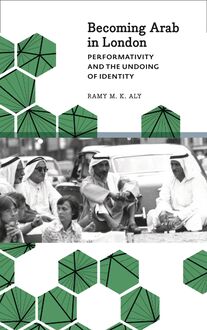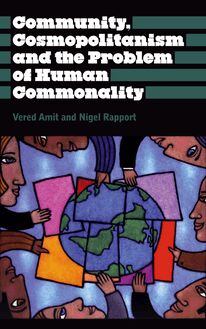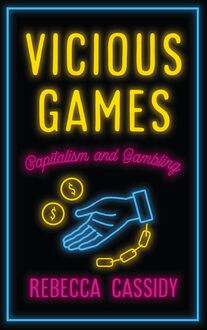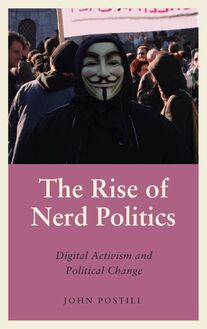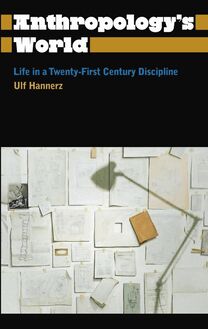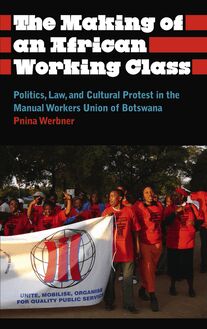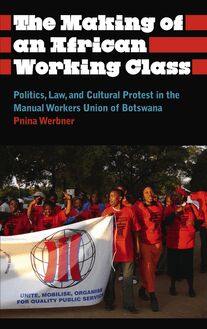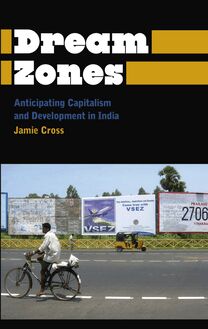Vicious Games , livre ebook
144
pages
English
Ebooks
2020
Vous pourrez modifier la taille du texte de cet ouvrage
Obtenez un accès à la bibliothèque pour le consulter en ligne En savoir plus
Découvre YouScribe et accède à tout notre catalogue !
Découvre YouScribe et accède à tout notre catalogue !
144
pages
English
Ebooks
2020
Vous pourrez modifier la taille du texte de cet ouvrage
Obtenez un accès à la bibliothèque pour le consulter en ligne En savoir plus
Publié par
Date de parution
20 février 2020
Nombre de lectures
5
EAN13
9781786805874
Langue
English
Gambling is everywhere, on our TVs and phones, on billboards on our streets, and emblazoned across the chests of idolised sports stars. Why has gambling suddenly expanded? How was it transformed from a criminal activity to a respectable business run by multinational corporations listed on international stock markets? And who are the winners and losers created by this transformation?
Vicious Games is based on field research with the people who produce, shape and consume gambling. Rebecca Cassidy explores the gambling industry's affinity with capitalism and the free market and how the UK has led the way in exporting 'light touch' regulation and 'responsible gambling' around the world. She reveals how the industry extracts wealth from some of our poorest communities, and examines the adverse health effects on those battling gambling addiction.
The gambling industry has become increasingly profitable and influential, emboldened by thirty years of supportive government policies and boosted by unnatural profits. Through an anthropological excavation, Vicious Games opens up this process, with the intention of creating alternative, more equitable futures.
Series Preface
Acknowledgements
Introduction
1. Gambling’s New Deal
2. Raffles: Gambling for Good
3. The Birth of the Betting Shop
4. The Rise of the Machines
5. The Responsible Gambling Myth
6. The Bookmaker’s Lament
7. Online in Gibraltar
8. The Regulation Game
Conclusions
Notes
References
Index
Vicious Games
Anthropology, Culture and Society
Series Editors:
Jamie Cross, University of Edinburgh, Christina Garsten, Stockholm University and Joshua O. Reno, Binghamton University
Recent titles:
The Limits to Citizen Power:
Participatory Democracy and the Entanglements of the State
V ICTOR A LBERT
The Heritage Machine:
Fetishism and Domination in Maragateria, Spain
P ABLO A LONSO G ONZ LEZ
Becoming Arab in London:
Performativity and the Undoing of Identity
R AMY M. K. A LY
Anthropologies of Value
E DITED BY L UIS F ERNANDO A NGOSTO -F ERRANDEZ AND G EIR H ENNING
P RESTERUDSTUEN
Ethnicity and Nationalism:
Anthropological Perspectives Third Edition
T HOMAS H YLLAND E RIKSEN
Fredrik Barth:
An Intellectual Biography
T HOMAS H YLLAND E RIKSEN
Small Places, Large Issues:
An Introduction to Social and Cultural Anthropology Fourth Edition
T HOMAS H YLLAND E RIKSEN
What is Anthropology?
Second Edition
T HOMAS H YLLAND E RIKSEN
Deepening Divides:
How Territorial Borders and Social
Boundaries Delineate our World
E DITED BY D IDIER F ASSIN
At the Heart of the State:
The Moral World of Institutions
D IDIER F ASSIN, ET AL.
Anthropology and Development:
Challenges for the Twenty-first Century
K ATY G ARDNER AND D AVID L EWIS
Children of the Welfare State:
Civilising Practices in Schools, Childcare and Families
L AURA G ILLIAM AND E VA G ULL V
Faith and Charity:
Religion and Humanitarian Assistance in West Africa
E DITED BY M ARIE N ATHALIE L E B LANC AND L OUIS A UDET G OSSELIN
Private Oceans:
The Enclosure and Marketisation of the Seas
F IONA M C C ORMACK
The Rise of Nerd Politics:
Digital Activism and Political Change
J OHN P OSTILL
Base Encounters:
The US Armed Forces in South Korea
E LISABETH S CHOBER
Ground Down by Growth:
Tribe, Caste, Class and Inequality in
Twenty-First-Century India
A LPA S HAH , J ENS L ERCHE, ET AL
When Protest Becomes Crime:
Politics and Law in Liberal Democracies
C AROLIJN T ERWINDT
Race and Ethnicity in Latin America
Second Edition
P ETER W ADE
Vicious Games
Capitalism and Gambling
Rebecca Cassidy
First published 2020 by Pluto Press
345 Archway Road, London N6 5AA
www.plutobooks.com
Copyright Rebecca Cassidy 2020
The right of Rebecca Cassidy to be identified as the author of this work has been asserted by her in accordance with the Copyright, Designs and Patents Act 1988.
British Library Cataloguing in Publication Data
A catalogue record for this book is available from the British Library
ISBN 978 0 7453 4038 8 Hardback
ISBN 978 0 7453 4039 5 Paperback
ISBN 978 1 7868 0586 7 PDF eBook
ISBN 978 1 7868 0588 1 Kindle eBook
ISBN 978 1 7868 0587 4 EPUB eBook
This book is printed on paper suitable for recycling and made from fully managed and sustained forest sources. Logging, pulping and manufacturing processes are expected to conform to the environmental standards of the country of origin.
Typeset by Stanford DTP Services, Northampton, England
Simultaneously printed in the United Kingdom and United States of America
Contents
Series Preface
Acknowledgements
Introduction
1 Gambling s New Deal
2 Raffles: Gambling for Good
3 The Birth of the Betting Shop
4 The Rise of the Machines
5 The Responsible Gambling Myth
6 The Bookmaker s Lament
7 Online in Gibraltar
8 The Regulation Game
Conclusions
Notes
References
Index
Series Preface
As people around the world confront the inequality and injustice of new forms of oppression, as well as the impacts of human life on planetary ecosystems, this book series asks what anthropology can contribute to the crises and challenges of the twenty-first century. Our goal is to establish a distinctive anthropological contribution to debates and discussions that are often dominated by politics and economics. What is sorely lacking, and what anthropological methods can provide, is an appreciation of the human condition.
We publish works that draw inspiration from traditions of ethnographic research and anthropological analysis to address power and social change while keeping the struggles and stories of human beings centre stage. We welcome books that set out to make anthropology matter, bringing classic anthropological concerns with exchange, difference, belief, kinship and the material world into engagement with contemporary environmental change, capitalist economy and forms of inequality. We publish work from all traditions of anthropology, combining theoretical debate with empirical evidence to demonstrate the unique contribution anthropology can make to understanding the contemporary world.
Jamie Cross, Christina Garsten and Joshua O. Reno
Acknowledgements
This book is the culmination of many years of fieldwork and it would be impossible, in a brief note, to acknowledge everyone who has played a part in its production. On the other hand, not everyone who contributed to this book would wish to be recognised for their input. So I begin by expressing my appreciation to everyone who has spoken to me or written to me about gambling over the past fifteen years. Every conversation in the margins of a conference or in a betting shop was valuable and helped to inform my understanding of gambling and politics, perhaps not always in the ways intended by my interlocutors.
My greatest debt is to the many gamblers who shared their experiences with me, and made me question the powerful narrative that gambling is a leisure activity, the equivalent of going bowling or to the cinema. I am particularly indebted to those who spoke to me about gambling harm. To take time to speak with a researcher while dealing with the utter misery that gambling addiction can inflict upon individuals and their families is an act of great generosity. I hope that hearing about their experiences will inspire more people to accept that gambling addiction is an illness and that the harm caused by gambling is everyone s responsibility. In striking contrast to other fields where patient and public participation is considered absolutely essential, the views of experts by experience have not informed gambling policy and research in the UK. I hope that this situation is about to change, largely thanks to the efforts of charities including Gambling With Lives.
I would also like to thank everyone in the gambling industry who took the time to speak with me, particularly the small number of bosses who allowed me to work in their offices and interview their staff. I will continue to attempt to persuade the UK Department of Digital, Culture, Media and Sport (the department lead on gambling at the time of writing) that access to industry data and environments, provided as a condition of licensing, is the only way to ensure that policy makers receive the evidence they need to inform their decision making. Without access to data, gambling research will continue to be speculative and the industry will remain largely unaccountable for its actions.
I have decided not to thank any colleagues by name simply because this may not assist them in negotiating access to other secretive, profitable worlds. I hope that by thanking everyone who has argued for greater accountability, transparency and independence in research (including gambling), I include many of the people who have helped to create this book. Thanks also to my fellow anthropologists, at Goldsmiths and elsewhere, who continue to sustain me with their ideas, passion and collegiality: returning to anthropology after a long stint in the field always feels like coming home.
Introduction
It s all a game: money, gambling, the City, politics. It s all the same. It just happens that the game we play is particularly vicious. (Senior bookie, London)
This book is about the global expansion of commercial gambling which has taken place since the early 1980s. It uses data gathered during long-term field research to understand how this growth has been underwritten by corporations, policy makers and academics eager to benefit from the profits of gambling. It describes the central role that the betting industry and policy makers in the UK have played in this process, and shows that the impact of reframing gambling, from a potential source of crime to a legitimate leisure activity, has been felt much further afield. It tells this story through the everyday lives of gambling industry professionals and their customers.
I have been interested in gambling since 1999 when I began fieldwork in Newmarket, the famous headquarters of British horse racing (Cassidy 2002). As a stable lass on a struggling racing yard, I would gallop horses on the heath in the early mornings, before spending the afternoons, half asleep, in the bookies . There I could meet with friends, watch our horses race, and sometimes place the odd bet. It was cheaper (if slightly dirtier and smokier) than the pub. At the time, gambling was a relatively low-profile activity: casinos were not allowed to advertise, betting shop windows were blacked out, online gambling was more pipe dream than reality. All this changed in 2007 when a new Gambling Act came into force in the UK, setting into motion a number of related processes, some of them intended (the growth of the online industry), others unanticipated (the clustering of betting shops on high streets). For an anthropologist, this change opened up important questions about British society, including how ideas about risk and reward were changing and being shaped by the growth of gambling.
Although we are beginning to learn about the impact these changes are having on people who gamble, less is known about the black box of the gambling industry. In this book I focus primarily on the people who produce gambling, including members of the various industries, regulators and politicians. The industry is (in their words) secretive, litigious and extremely well-funded (North American casino executive, speaking in 2012). The
